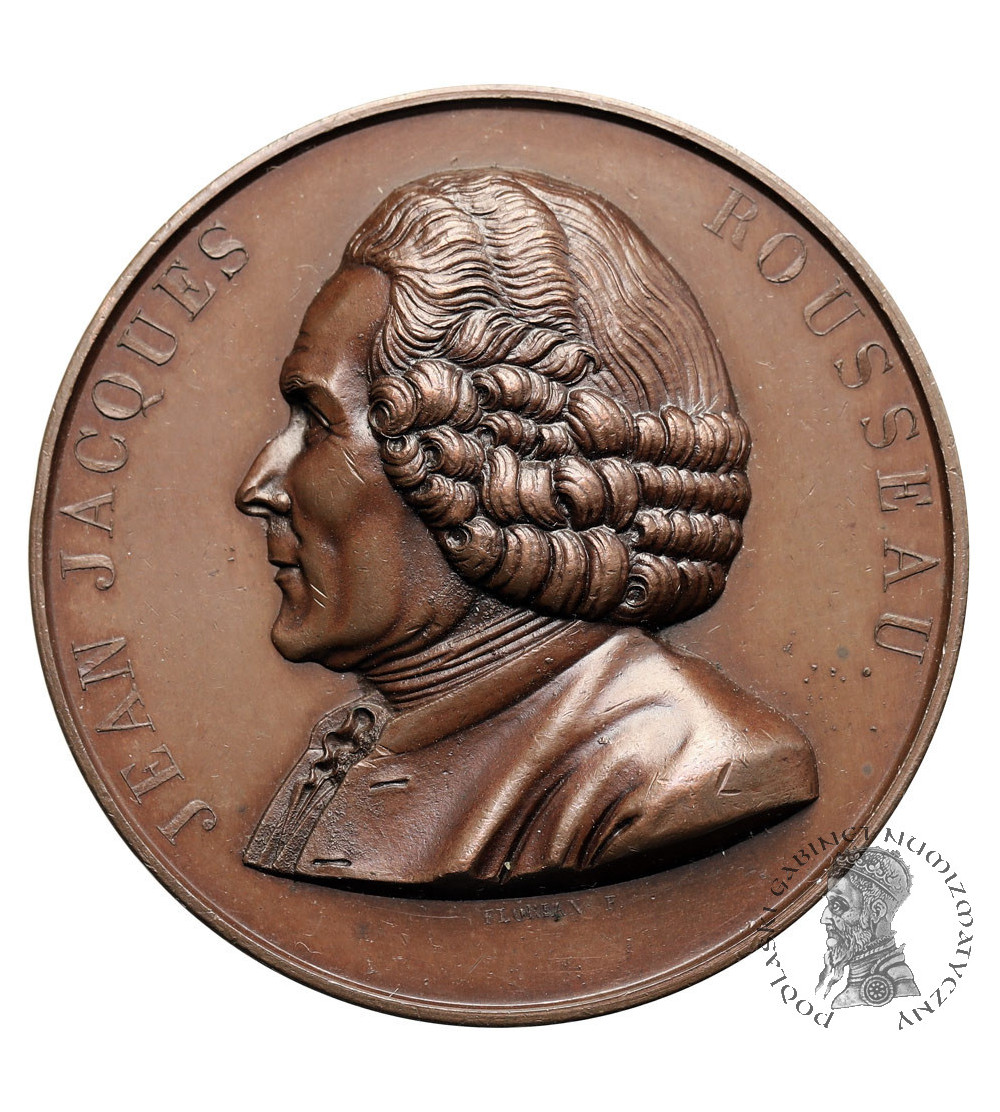




Switzerland, Geneva. Medal 1878 commemorating the 100th anniversary of the death of Jean-Jacques Rousseau (1712-1878), a Geneva-based writer who wrote in French, philosopher, educator, music theorist, author of the treatise “Emile, or On Education” (1762), by Florian F., Bronze 42 mm, weight 39,40 g, Condition aUNC
Jean-Jacques Rousseau. He taught the whole world how to raise children, but he gave his own offspring to an orphanage (author: Anna Winkler)
His works remain part of the canon of literature devoted to education. He posed as a “teacher of virtue” and urged mothers to care tenderly for their children, emphasizing the importance of breastfeeding, among other things. However, he denied his own offspring everything, abandoning them to the mercy of the state. And he felt no remorse whatsoever.
In fact, from the moment of his public debut, i.e. from his Discourse on the Sciences and Arts, published in 1750, Jean-Jacques Rousseau adopted a critical and moralizing attitude. He became famous for his uncompromising thesis that civilization had brought humanity only harm, not benefit.
In his opinion, progress did not improve human customs or make people better—quite the contrary. Following this line of thinking, in many of his works he called for reform and instructed people on how to live. This was also the case in his 1762 treatise Emil, or On Education.
Emile, which is still widely read today, contains many tips on how to raise children in such a way as to protect their “naturalness” and innate goodness as much as possible, while at the same time guiding them so that they learn to cope with life. There is no doubt that this requires a great deal of time, effort, and attention on the part of the educator.
In his book, Rousseau also emphasized the importance of the relationship between children and their parents. He insisted that the practice of using wet nurses, which was popular among the upper classes at the time, should be discontinued.
Such views seemed revolutionary in the 18th century for many reasons. The publication was almost immediately added to the index of banned books.
But another scandal caused a stir among Parisian high society: it was widely known that Rousseau, who was posing as a “legislator of education,” had given his own children to an orphanage.
source: wielkahistoria.pl